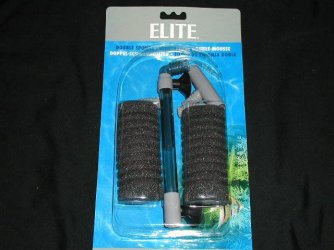I believe it may be time for me to get a new filter.... I'm not sure how old the one I have now is since I got all the tank equipment from my grandmother. I'm also not sure the exact make... I know it is an Aquatech filter, and it hangs on the back of the tank.
Here is the problem... I have noticed theirs are little dust particles in my water. At first I thought it may be an algae bloom... but I think it might be more likely that my filter just isn't filtering the water through properly. It also recently started buzzing and trickling a lot, even when the water level is all the way to the output area. Some water is also flowing out of the section that the intake tube is held in, if that makes sense.
I really like the filters that hang on the back, but what brand wouldn't you all recommend? Should I just get another Aquatech? (Ps my tank is a 29 gallon) or maybe I don't need a new filter... if so are there any ways to handle the "dust"
Here is the problem... I have noticed theirs are little dust particles in my water. At first I thought it may be an algae bloom... but I think it might be more likely that my filter just isn't filtering the water through properly. It also recently started buzzing and trickling a lot, even when the water level is all the way to the output area. Some water is also flowing out of the section that the intake tube is held in, if that makes sense.
I really like the filters that hang on the back, but what brand wouldn't you all recommend? Should I just get another Aquatech? (Ps my tank is a 29 gallon) or maybe I don't need a new filter... if so are there any ways to handle the "dust"



